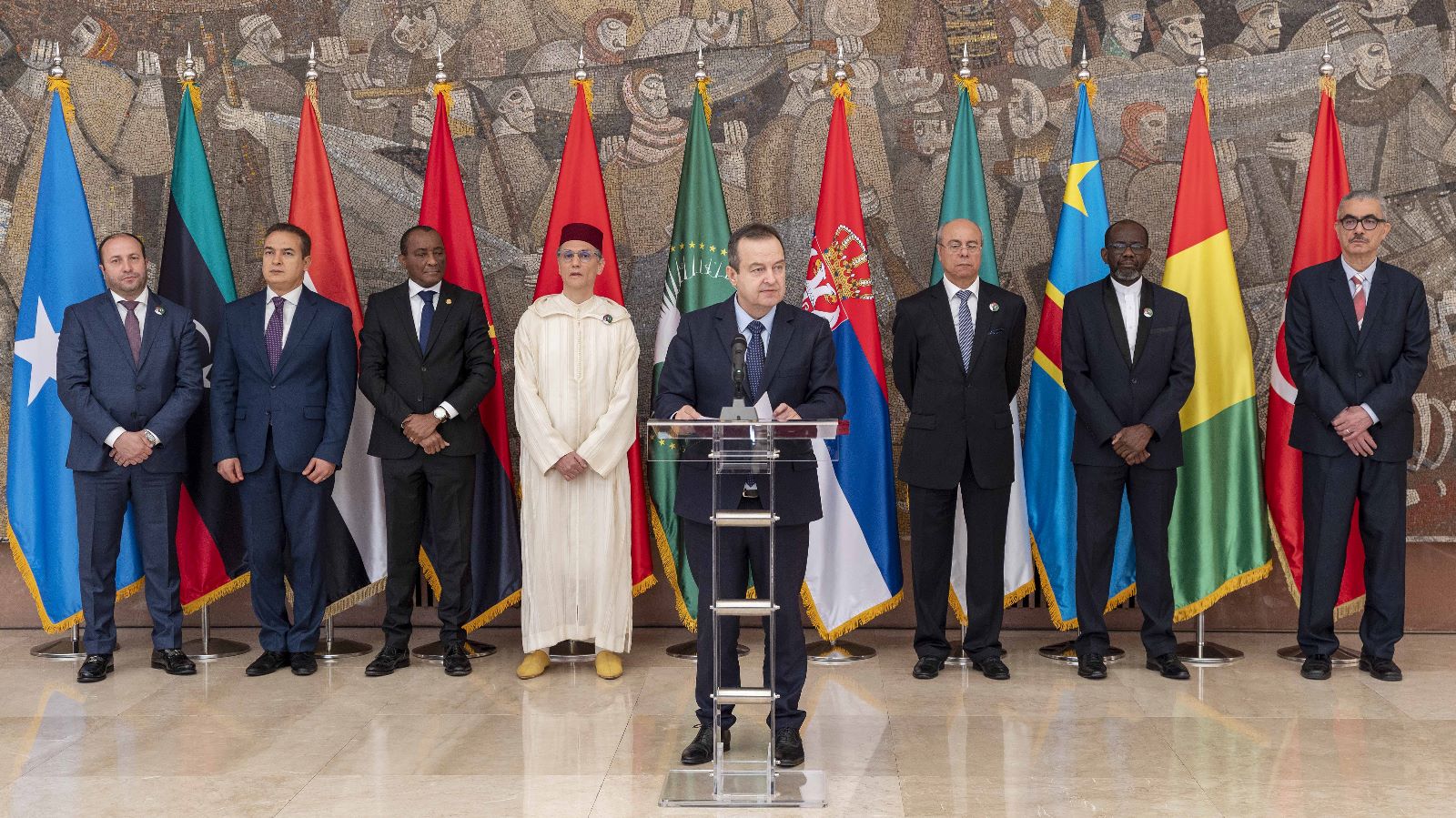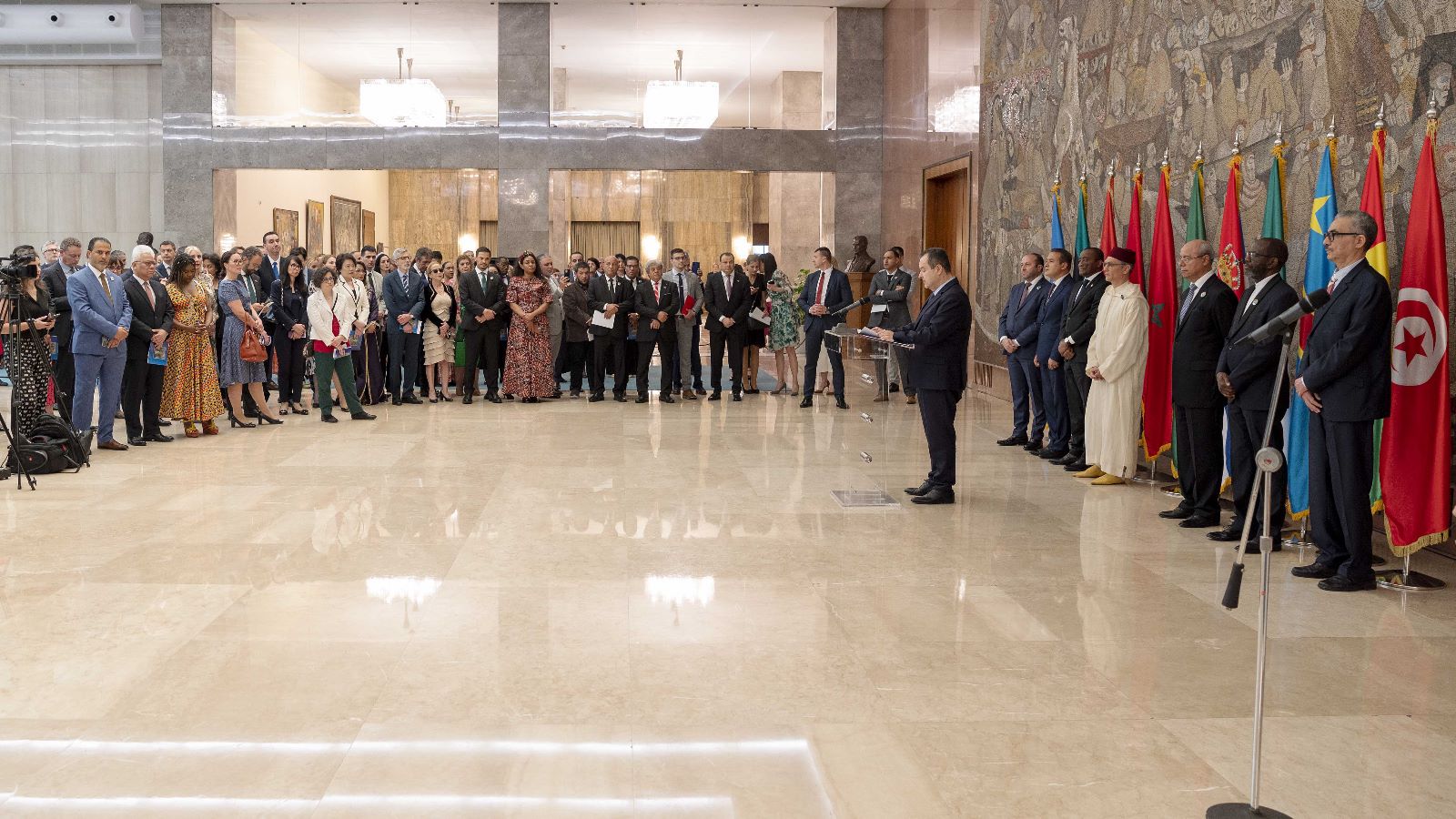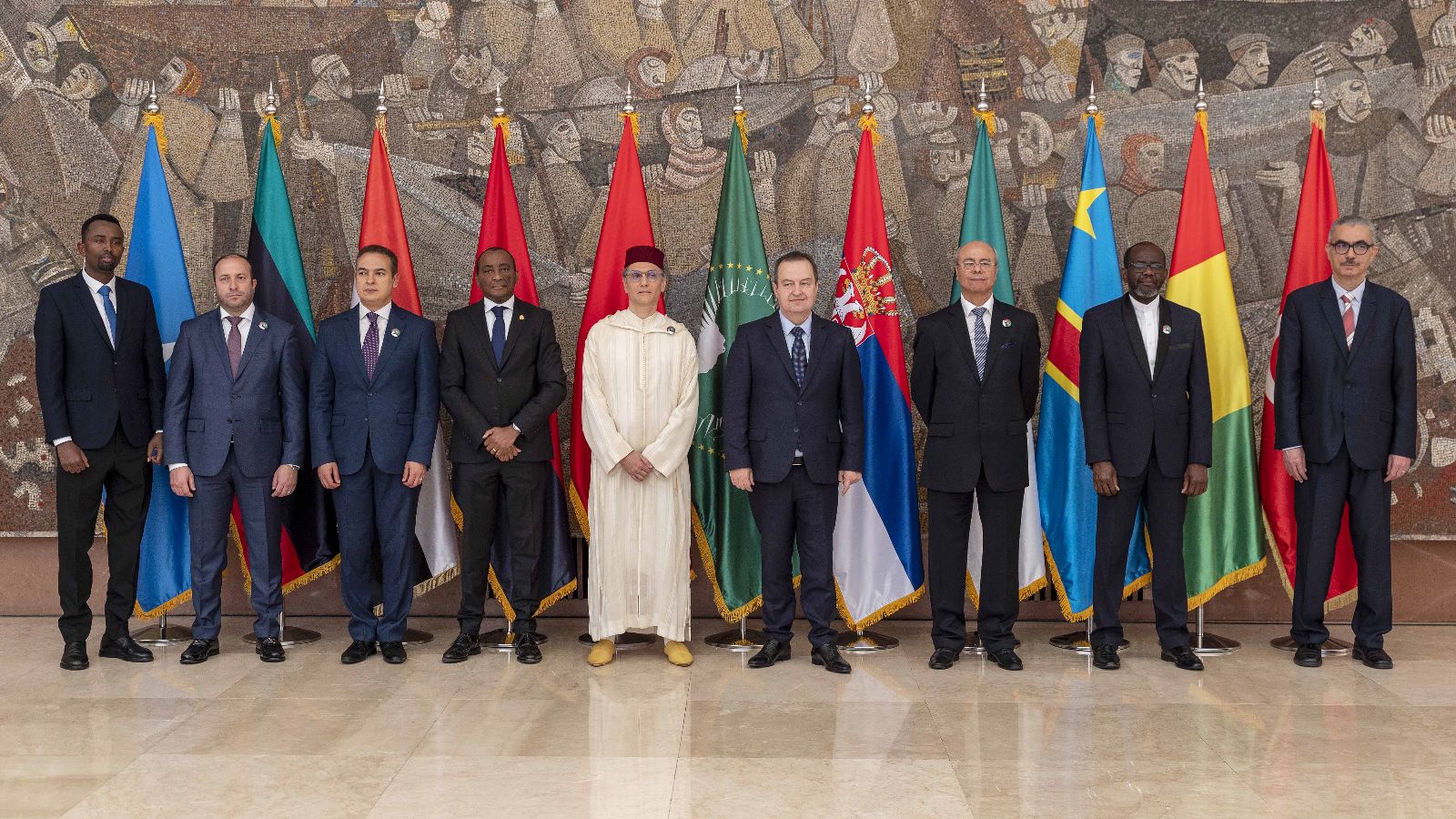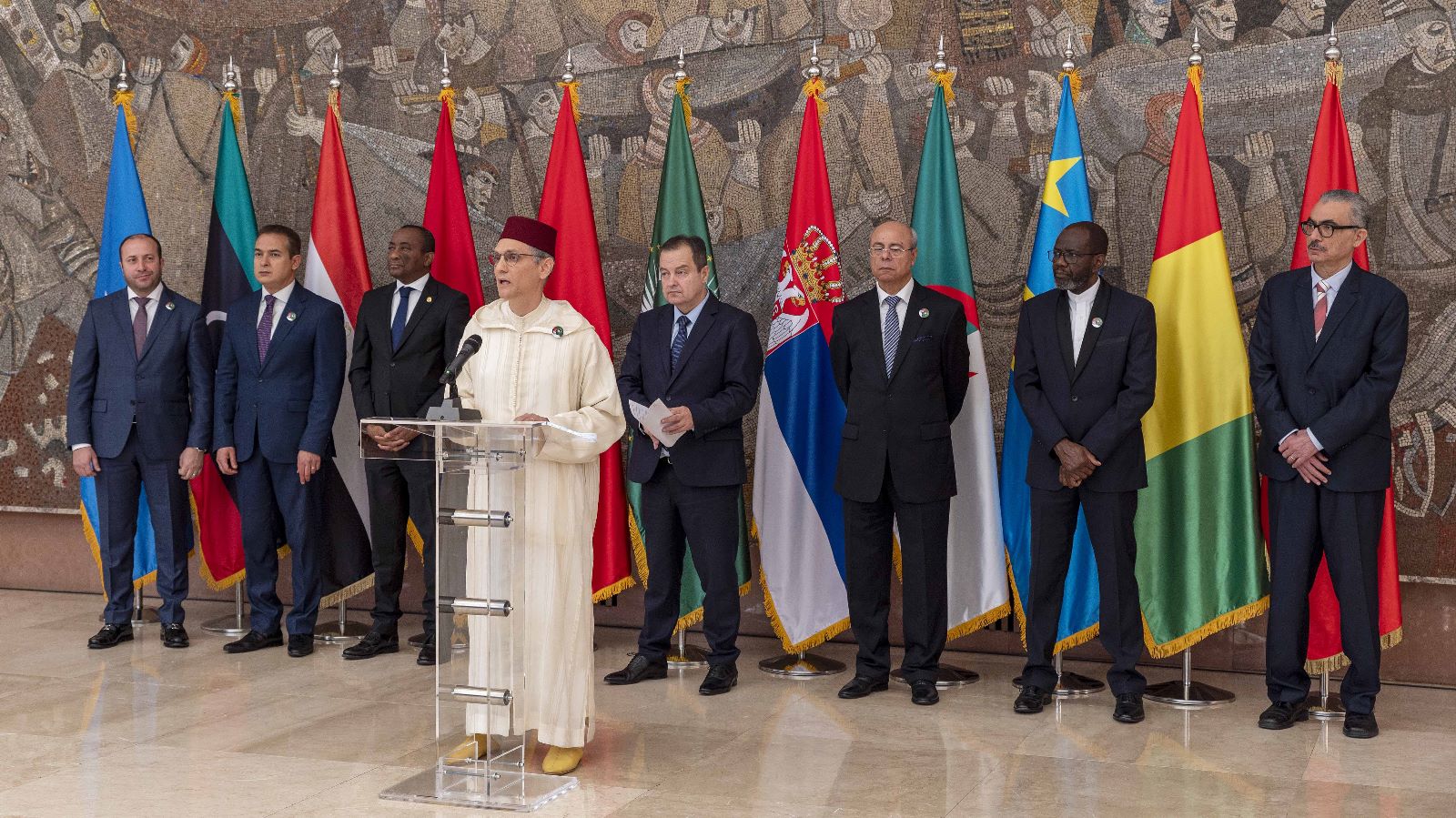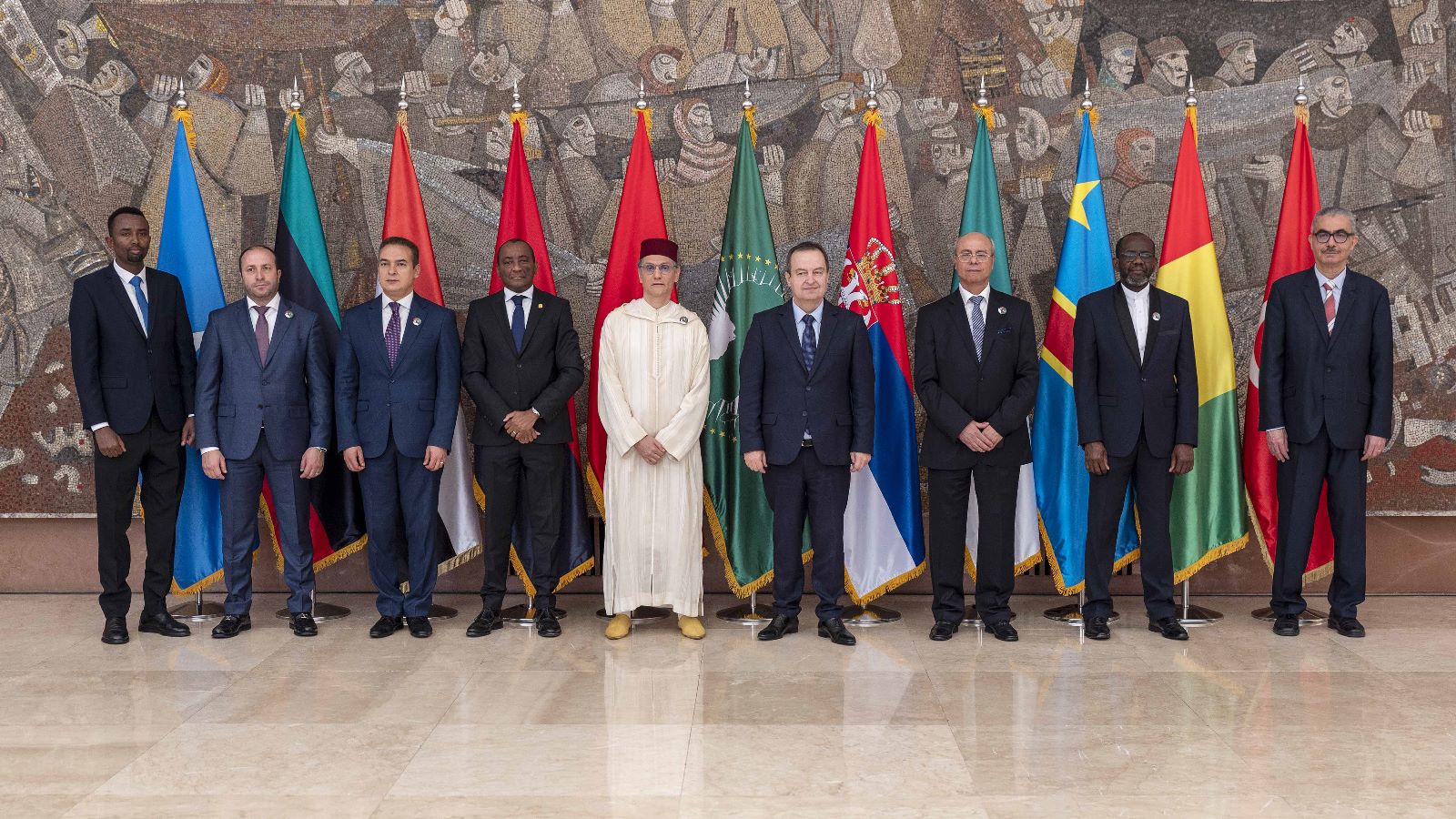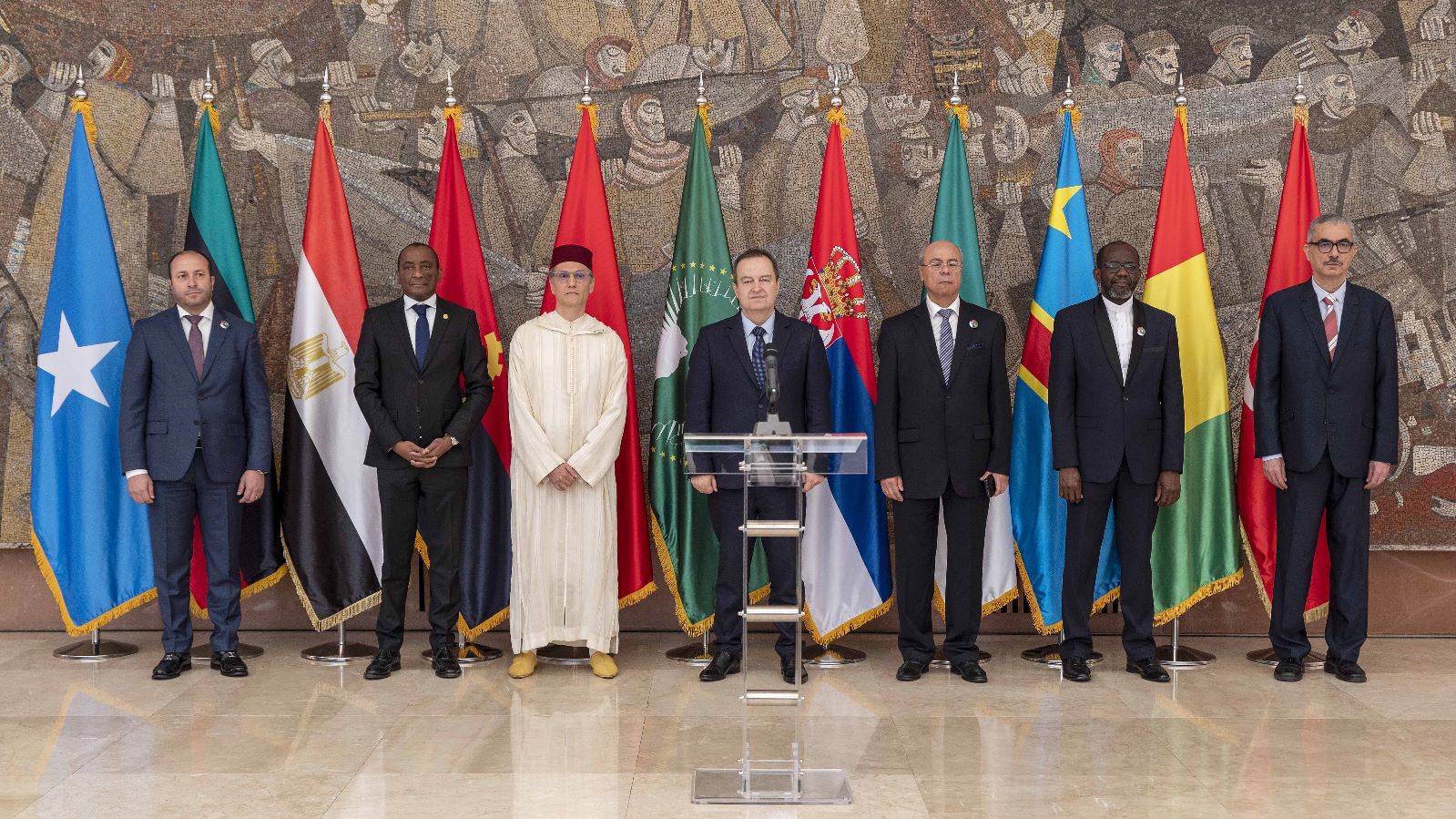Minister Dačić’s address on the occasion of the commemoration of Africa Day
Minister Dačić’s address at the reception organized for this occasion is given here in full:
Your excellencies,
Ladies and gentlemen,
Dear guests,
Welcome to Belgrade and Serbia - the second home of African friends, allies and partners. For African and world statesmen, Serbia, former Yugoslavia, is a land of old acquaintances, warm welcome and sincere friendship. We know how to respect and nurture differences, aware that precisely these differences are the wealth on which we build our relationships.
In a world that is increasingly characterized by a crisis and unpredictable environment, in a time of great global challenges, it is the right moment to confirm old and proven friendships. Our alliance and understanding were hardened not so long ago, in the heroic times of the anti-colonial and liberation struggle. Our exploits at that time are a lasting inspiration. We are obliged to confirm the importance of that struggle even today. It is precisely the unpredictable international dynamics that remind us to nurture historical alliances in order to jointly devise answers to current challenges.
Serbia has the necessary experience, sensitivity and reliability in contact with close and friendly African nations and states. Although the ties between Africa and Europe are millennial and civilizational, at the same time, in significant segments of previous centuries, they were burdened by the conquering and colonial past. This kind of discriminatory and imperial relationship was and remains unknown, foreign and repulsive to Serbia. Serbia has always and in every way helped the struggle for decolonization and the liberation of the oppressed people. As in the past, Serbia does not have any hidden plans in Africa and African countries today. Through my personal actions, I design and implement, dare I say, ambitious African tours. I am convinced that in this way, through direct contacts, we are opening new horizons of cooperation and directing it towards areas of mutual interest.
Serbia wants to materially fulfill a favorable political bilateral framework with most African countries through concrete projects. In the wake of decades of experience and examples of good practice in equal cooperation, as conceived and practiced through the Movement of Non-Aligned Countries, Serbia renewed old friendships and once again set out on recognizable paths of alliance with Africa. Proclaiming May 25 as the Day of Friendship with the Peoples of Africa in Serbia, at my suggestion, is a symbolic way to show our commitment to deepening cooperation with the African continent.
Today, on May 25, we mark six decades since the formation of the then Organization of African Unity, the African Union today. Since its formation, the African Union has contributed significantly to the peace and stability of the African continent. Therefore, I believe that the role of the African Union should and can be decisive for relevant African issues in the 21st century. The
international reputation of Serbia exceeds the classic parameters of size and strength, and represents a recognizable trump card on the international stage and an attractive force for competent global actors. Therefore, Serbia will continue to be a link in cooperation of the African Union with different regions.
Although regional action has a special importance in the normalization of world trends, the challenges we face are increasingly complex and require global cooperation. In the current circumstances, a special impulse in the international arena should provide a coordinated and principled performance, emphasizing the indiscriminate respect of international legal principles, the UN Charter and generally accepted rules of cooperation. We should not adapt consistency in respecting the "game rules" to daily political interests. This is precisely why we are grateful to the African countries that, almost all, respect the territorial integrity and sovereignty of the Republic of Serbia and do not recognize the unilaterally declared independence of "Kosovo".
In multilateral forums, we pay special attention to Africa in our foreign policy. This is also the case with Serbia's candidacy for the organization of EXPO 2027, where Serbia strives to be an "African candidate" and to logistically and conceptually support the participation of these countries in the exhibition if it is selected. In addition, we are proud to point out that the Republic of Serbia became one of the founders of the Group of Friends for Priority Africa in UNESCO last year. We are advocates of the most comprehensive and substantial support to UNESCO Africa, not only for the sake of the well-being of African countries, but also for the benefit of the organization's entire membership. After all, this is part of what we do during our mandate as part of the UNESCO Executive Council, which we will continue to do, but only if we are re-elected with
your support. Therefore, I use this opportunity to call on your countries to support Serbia's candidacy for re-election as a member of the UNESCO Executive Council for the third consecutive term (2023-2027), at the 42nd session of the General Conference of UNESCO in November 2023.
Also, we will continue to participate in peacekeeping missions on the continent, with the desire that there would be as few of them as possible in future, as well as in humanitarian and development activities and with scholarships for African students at universities within the framework of the "World in Serbia" project, which is now known throughout the Africa.
Although political and security issues are, often with reason, high on the scale of foreign policy priorities, the revival and worthy presentation of African traditions and cultural heritage is of inestimable importance. Here, Serbia has significant experience, expertise, but most importantly - historical and institutional memory. For decades, the Museum of African Art in Belgrade has been a prestigious reference point for regional and European historians, art historians, contemporary artists and, simply, connoisseurs and admirers of the refined and complex artistic expression of Africa. The museum has existed since 1977 and is probably the only anti-colonial museum of African art in Europe, whose exhibition consists exclusively of objects obtained as (private or state) gifts or through regular commercial means.
Dear friends,
Serbia and Africa are united by the indomitable spirit of freedom, to which we owe pride and freedom. Maybe that is why we understand and respect each other, and I am certain that we will rely on each other in future even more.
Long live Serbia, long live Africa!

